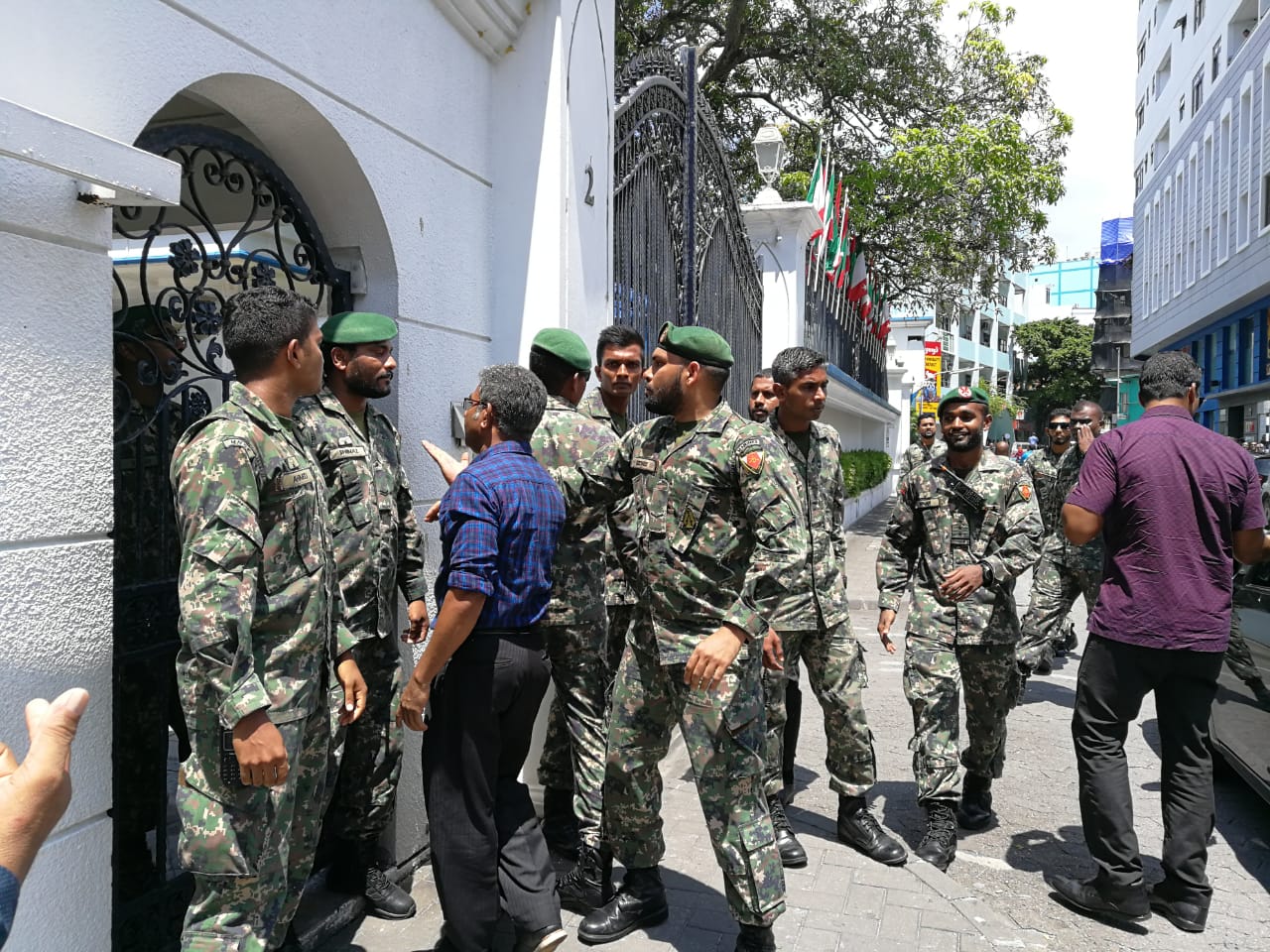Tensions run high as Supreme Court hears election challenge
President Yameen asked the court to annul the September 23 election.

14 Oct 2018, 09:00
Tensions were running high in the Maldives capital Sunday as the Supreme Court heard President Abdulla Yameen’s petition to annul the September 23 election.
The president’s legal team presented their case and the Elections Commission’s lawyers offered its response. The full bench of the apex also heard from lawyers representing the joint opposition parties, who were allowed to enter the case as a third party.
A second hearing has been scheduled for Monday morning.
According to reports, the EC lawyer dismissed vote rigging claims as “imaginary.”
Become a member
Get full access to our archive and personalise your experience.
Already a member?
Discussion
No comments yet. Be the first to share your thoughts!
No comments yet. Be the first to join the conversation!
Join the Conversation
Sign in to share your thoughts under an alias and take part in the discussion. Independent journalism thrives on open, respectful debate — your voice matters.




